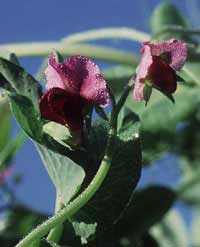Poetry for Summer
Updated February 21, 2017 | Factmonster Staff 

And an oily smoke that rolls through the trees/
into the night of the last American summer . . . —Major Jackson
into the night of the last American summer . . . —Major Jackson
The summer's flower is to the summer sweet, Though to itself it only live and die.—William Shakespeare (1564–1616) Sonnet 94 (before 1598) |  | |
And pomp, and feast, and revelry, With mask, and antique pageantry, Such sights as youthful poets dream On summer eves by haunted stream. —John Milton (1608–1674) L'Allegro (1631) | ||
Summer ends now; now, barbarous in beauty, the Stooks arise Around; up above, what wind-walks! what lovely behavior Of silk-sack clouds! Has wilder, willful-waiver Meal-drift molded ever and melted across skies? —Gerard Manley Hopkins (1844–1889) No. 38, "Hurrahing in Harvest," Poems (1918) |
| |
| —Alfred Noyes (1880–1958) "The Barrel-Organ," Poems (1904) | ||
| —William Shakespeare (1564–1616) Sonnet 18 (before 1598) | —Geoffery Chaucer (1343-1400) The Parliament of Fowls (1380–1386) | |
| —Walt Whitman (1819–1881) "Song of Myself" (Part 21) Leaves of Grass (1855) | ||
| —Thomas Moore (1779–1852) "The Last Rose of Summer," Irish Melodies (1807-1834) | —George Noel Gordon, Lord Byron (1788–1824) Don Juan (1819–1824) | |
| —Thomas Nash (1567–1601) "Summer's Last Will and Testament" (1600) |
| |
| —William Wordsworth (1770–1850) "Summer Vacation," The Prelude (1805) |
| |
|
See also:
